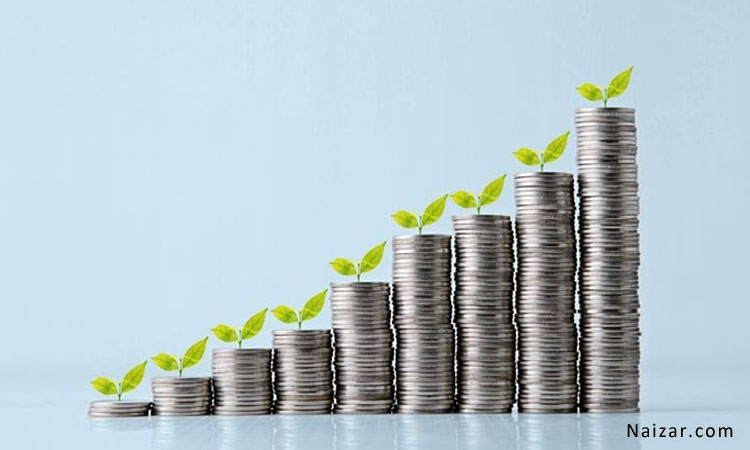The Power of Business
Business is the backbone of any thriving economy, playing a vital role in shaping global markets, generating employment opportunities, and fueling innovation across industries. From multinational corporations that influence international trade to small and medium enterprises that drive local development, the business world is a dynamic ecosystem of opportunity and resilience.
Businesses not only stimulate economic growth but also serve as catalysts for technological advancement, community empowerment, and financial stability. In this comprehensive article, we dive deep into the evolving landscape of business, exploring significant trends shaping the future, notable events influencing market direction, the growing emphasis on sustainability, and critical economic indicators. Additionally, we shed light on the challenges and achievements of small business sectors and examine the pivotal role of real estate in economic development.
Whether you’re a budding entrepreneur or a seasoned investor, understanding the pulse of business is essential to navigating tomorrow’s economy.
Business Events

Business events are powerful catalysts for innovation, collaboration, and industry growth. They play a critical role in shaping the future of industries by uniting thought leaders, seasoned investors, aspiring entrepreneurs, and influential policymakers under one roof. These dynamic gatherings — ranging from international conferences to regional expos — create vibrant environments where ideas are exchanged, partnerships are formed, and emerging trends are revealed.
Major business events such as the World Economic Forum, global Tech Summits, and industry-specific trade fairs serve as valuable platforms for strategic networking, market analysis, and knowledge sharing. Attendees gain firsthand exposure to cutting-edge technologies, forward-thinking business models, and real-time economic insights. Such events often act as launching pads for innovation and change, sparking conversations that shape corporate strategies and influence public policy.
Whether you’re looking to showcase your latest innovation or seeking insights into market transformations, participating in business events opens doors to new opportunities and a clearer understanding of the global business landscape.
Sustainability in Business

Sustainability has evolved from a trend into a core principle that defines the future of responsible business practices. In today’s rapidly changing world, companies across the globe are recognizing the importance of aligning their operations with environmental, social, and ethical standards. The shift toward sustainable business models is no longer optional, it’s essential for long-term success and global impact.
Modern businesses are actively embracing eco-conscious initiatives, such as reducing greenhouse gas emissions, minimizing waste, utilizing renewable energy sources, and ensuring responsible water and energy consumption. These steps not only address the urgent challenges of climate change but also reflect a company’s commitment to corporate social responsibility (CSR) and ethical stewardship.
Forward-thinking organizations are implementing green strategies like sustainable packaging, ethical sourcing of raw materials, and investment in circular economy models. These efforts lead to stronger stakeholder trust, improved brand image, and increased consumer loyalty. Sustainability is not just good for the planet; it’s a powerful business advantage in a market where values matter as much as value.
In an age where transparency and accountability shape consumer choices, companies that prioritize sustainability are not just doing the right thing, they’re also building a better, more resilient future for everyone.
The Economy and Business Growth

The health of an economy is one of the most influential forces affecting the trajectory and success of businesses worldwide. From small startups to multinational corporations, every organization is impacted by a range of economic factors that can either fuel expansion or demand strategic adjustments for survival.
Key indicators such as inflation rates, interest rates, taxation policies, consumer confidence, and government regulations create the foundation upon which market conditions are built. In times of economic stability and growth, businesses often experience increased investment opportunities, higher consumer spending, and the ability to scale operations more confidently. Conversely, economic slowdowns or recessions push businesses to become more agile, cut costs, innovate rapidly, and find alternative revenue streams to stay afloat.
In today’s interconnected world, global economic trends like digital transformation, automation, and the rise of emerging markets are rapidly altering traditional business practices. Companies are now required to not only keep pace with technological advancements but also remain resilient in the face of shifting trade dynamics, currency fluctuations, and global supply chain disruptions.
A deep understanding of economic drivers can empower businesses to make smarter decisions, anticipate challenges, and seize growth opportunities. Ultimately, staying attuned to the pulse of the economy is essential for sustainable business development in the 21st century.
Small Business and Entrepreneurship

Small businesses are not just a vital part of local economies; they are the very foundation of innovation, job creation, and economic dynamism. From bustling retail shops to tech startups, small businesses serve as the backbone of communities, providing goods and services that cater to the unique needs of consumers. Entrepreneurs are constantly seeking new ways to break barriers, challenge the status quo, and create sustainable growth.
In recent years, the rise of e-commerce platforms, freelancing opportunities, and digital marketing strategies has transformed the entrepreneurial landscape. With the power of the internet, aspiring business owners can now reach global audiences, offer specialized products and services, and leverage cost-effective advertising tools to promote their brands. These digital advancements have opened up numerous doors for entrepreneurs, providing them with more autonomy and flexibility to operate their businesses from virtually anywhere in the world.
Moreover, government programs, funding options, and online business models have greatly enhanced the chances for startups to succeed in an increasingly competitive marketplace. Initiatives such as tax incentives, grants, and small business loans are providing crucial financial support to budding entrepreneurs. At the same time, platforms like crowd funding, venture capital, and angel investing are enabling innovative ideas to secure the necessary resources for growth.
Entrepreneurship has never been more accessible or more powerful than it is today. Small businesses are uniquely positioned to drive change and spark new industry trends, and the tools available to them have never been more advanced. The entrepreneurial journey may be challenging, but it offers endless possibilities for those who are willing to take the leap and innovate.
Real Estate and Business Investment

Real estate is a crucial element of business investment, driving both commercial and residential sectors. As the world continues to urbanize, the demand for residential and commercial properties grows, influencing the market dynamics. Economic factors such as interest rates, property demand, and government policies directly impact the potential for growth and profitability in the real estate sector. Investors closely monitor these indicators to identify lucrative opportunities and maximize returns.
The real estate market has evolved with the advent of smart cities, eco-friendly developments, and integrated commercial hubs. These innovations present significant opportunities for long-term investment, as they attract both individual investors and large corporations looking to capitalize on sustainable growth. The trend towards urbanization and sustainable design ensures that real estate remains a powerful asset class, contributing to economic development and offering stability in a fluctuating market.
With real estate continuing to be a key player in global business, it remains an attractive avenue for investors. The value of strategic investments in prime locations, residential developments, and commercial properties cannot be overstated. By focusing on emerging trends like green building technologies and smart infrastructure, investors can position themselves for steady profits and sustained growth in the evolving market.
Conclusion
The business world is ever-evolving, shaped by global events, sustainability initiatives, economic shifts, small business growth, and real estate trends. Staying informed about these aspects helps businesses and entrepreneurs make strategic decisions for long-term success. Whether you’re an investor, a startup owner, or a business professional, understanding these factors will empower you to navigate the complex business landscape effectively.




